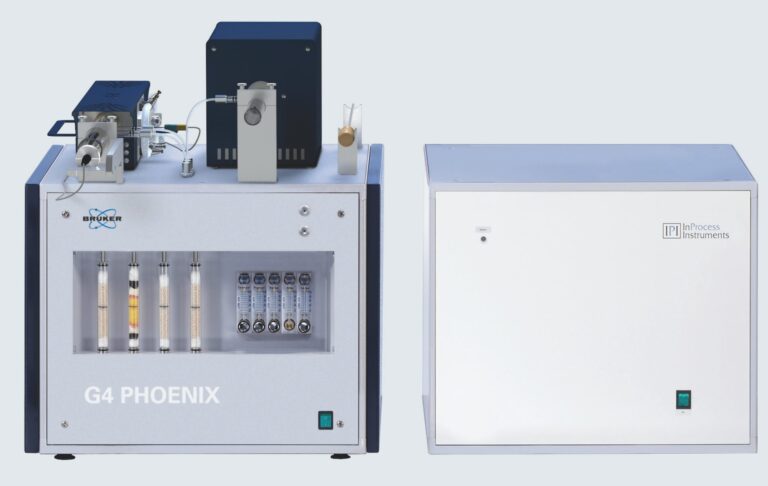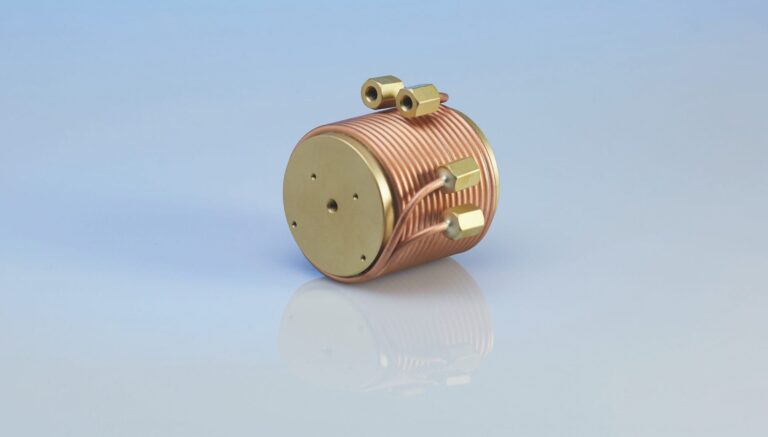CS/ONH-ANALYSIS (CS/ONH)
G4 PHOENIX DH
Avoid embrittlement, hydrogen-induced cracking and other costly failures.
Accurate and fast diffusible Hydrogen measurements
Thermal Desorption Mass Spectrometry (TDMS )
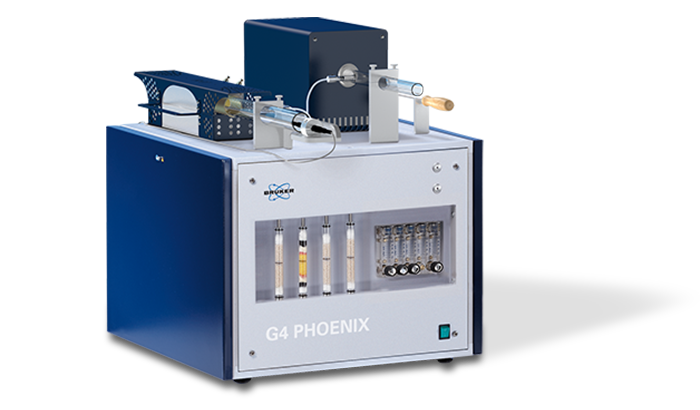
The One and Only Solution for One Task: Diffusible Hydrogen @ its Best
ppb (ng/g)
Limit of Detection for Hydrogen
The highly sensitive thermal conductivity detector allows analysis down to a sub-ppm range, while the optional mass spectrometer allows detection limits in the low ng/g range.
10 Volumes
of the automated gas dosing calibration system
Ensure linearity and traceability of your calibration over a wide dynamic range.
30 mm
Diameter of the furnace tube
Suitable to accept large samples like sheet metal or welding specimen according to AWS A4.3Accurate and rapid diffusible hydrogen measurements allow you to avoid embrittlement, hydrogen-induced cracking and other costly failures.
Hydrogen-induced damage is a wide-spread and dreaded phenomenon. During welding, hydrogen is generated from the dissociation of water vapor (e.g. humidity) or hydrocarbons in the welding arc, and the molten metal can rapidly pick up hydrogen. Once in the metal, hydrogen atoms can diffuse swiftly inside the microstructure of the metal. Diffusible hydrogen causes hydrogen induced cracking (also known as cold or delayed cracking), where components fail under the influence of mechanical stress – suddenly and without prior indication. Thus, diffusible hydrogen is critical to assess because of embrittlement, hydrogen induced or assisted cracking (HIC/HAC) or hydrogen delayed fracture among other damaging effects.
The G4 PHOENIX DH, utilizing carrier gas warm extraction for a rapid and automatic determination of diffusible hydrogen in a wide variety of matrices.
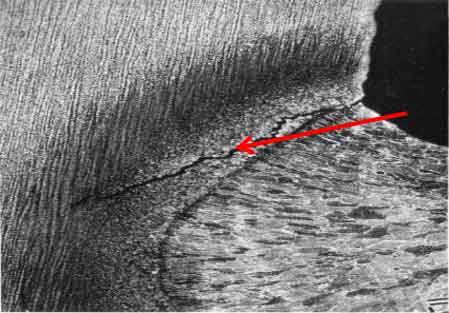
Key Benefits
- High-end, long term stable thermal conductivity detector (TCD) with dedicated reference gas channel, heat exchanger and ng/g analysis capabilities
- Unique infrared (IR) furnace with low thermal mass for accurate temperature control, programmable rapid heating (and cooling) up to 900°C accepting large samples
- Optional thermocouple kit for direct sample temperature readings
- Additional resistance heated furnace for higher temperatures up to 1100 °C as option
- Automatic and reliable gas calibration with hydrogen or helium over the entire measurement range by the integrated gas dosing unit with 10 different volumes
- Optional interface to external sampling canisters to cover the GC method of ISO 3690
- G4 PHOENIX MS with quadrupole mass spectrometer improves the detection limit by more than one order of magnitude, enabling evaluation of ultra-low diffusible hydrogen concentrations or isotopes and studies of different hydrogen traps in steel
Why do I need diffusible hydrogen analysis?
Hydrogen induced cracking and embrittlement is a dangerous phenomenon. Although high-strengths steels and oxygenated copper grades are particular susceptible to hydrogen embrittlement, an uptake of diffusible hydrogen affects many more metals but depends to a large extent on the environmental and process conditions, like ambient moisture. There is a risk of introducing hydrogen in every mechanical, thermal and galvanic manufacturing step, especially during welding and soldering.
The rapid method applied by the G4 PHEONIX can deliver results in less than 30 min, whereas traditional methods require multiple days. Thus, it is the only method allowing a feasible pre-welding testing for diffusible hydrogen. This allows users to optimize their process to avoid costly failures, before they are done.
Experts for the first element: Hydrogen
G4 PHOENIX Applications
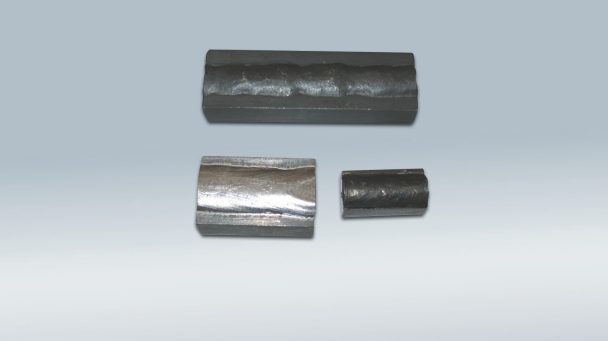
Welding & allied Processes
Bruker’s unique G4 PHOENIX is supported by ISO 3690 and AWS A4.3 and enables a rapid assessment of diffusible hydrogen levels introduced during welding. Because of its speed, it enables pre-welding experiments on test samples, helping the welding industry to avoid costly failures.

High-Strengths Steels
High-strength steels are increasingly used for modern assemblies, and highly complex stamped-bent designs are made from rolled sheets and strips. The original materials are rolled several times, thermally treated, galvanized, bent, stamped, welded or coated during the production process. Because of their microstructure, high-strengths steels show high susceptibility to hydrogen embrittlement. This makes information about introduced hydrogen levels crucial to suppress the risk of crack formation.
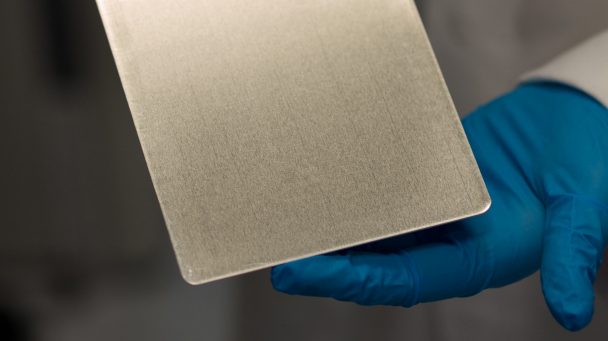
Thermal Desorption Mass Spectrometry
Thermal Desorption Mass Spectroscopy (TDMS) with temperature ramps provides kinetic information like the trapping-energy of hydrogen within a metal structure. Terms like diffusible, weakly or strongly trapped, and chemically bound hydrogen can be directly correlated with the supplied activation energy. Bruker’s unique G4 PHOENIX MS is capable to analyze hydrogen or isotopes like deuterium at concentrations of a few ng/g. This enables precise mechanism investigations needed for the development of new alloy generations or alloys suitable for hydrogen storage.
G4 PHOENIX Specifications
| Specification | Benefit | |
|---|---|---|
| Detector | ||
| G4 PHOENIX | Thermal conductivity detector with reference channel and adjustable gain amplifier | Reliable, adjustable ranges, drift free |
| G4 PHOENIX MS | Mass spectrometer, m/z range 1-100 amu, single quadrupole, optimized EI source and channeltron detector | Unique mass spectrometry performance |
| Furnaces | ||
| Infrared heated | IR furnace uop to 900 ºC, i.d. of quartz tube 30 mm, water cooled, optinal thermocouple kit for direct sample temperature readings | Precise temperature control, flexible heating programms, accepts large samples |
| Resistance Heated (option) | Additional resistance heated furnace up to 1100 ºC, i.d. of quartz tube 18 mm | Residual hydrogen in multi-phase duplex steels |
| Carrier Gas | Nitrogen 99.995% purity, min. 2 bar (~50 psi), 99.9990% purity for trace analysis | Pre-cleaning using regenerateable molecular sieve |
| Calibration Gas | With pure gases (H2 or He) or certified mixtures (each component 99.999% purity), automatic gas dose calibration system with 10 individual volumes | Easy, precise gas calibration without standards, traceable to p, T, V |
| Cooling Water | 1 l/min @ 3 bar (44 psi) | Fast cool down, standard tap water compatible, water-saving design with water-stop valve, chiller also possible |
| Power Supply | ||
| G4 PHOENIX | 230 VAC (± 10 %), 50-60 Hz, 2200 VA | Industry standard power and current configurations |
| Mass Spectrometer | 230 VAC, 50-60 Hz, 250 VA | |
| Dimension & Weight | ||
| G4 PHOENIX | 630 x 700 x 670 mm (W x D x H), weight ~ 50 kg | |
| Mass Spectrometer | 630 x 640 x 480 mm (W x D x H), weight ~ 60 kg |

